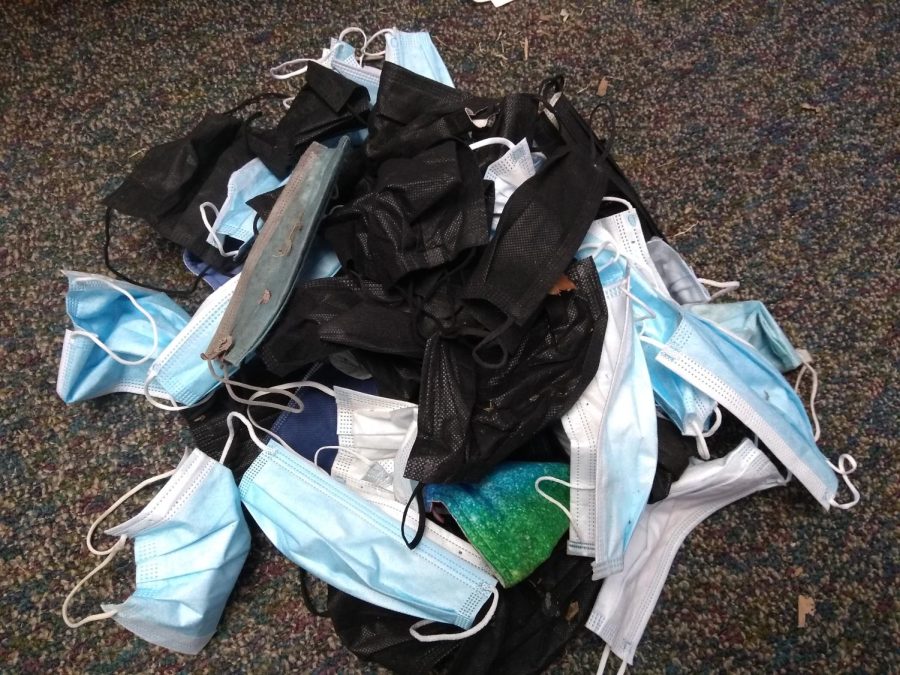Mask Waste on Campus
January 31, 2022
Amid the public health crisis that is the coronavirus pandemic come issues of sustainability and environmental consciousness. Mask litter has become a nationwide problem, reaching even to our own University. This waste has a negative impact, like most pollution, on the environment and wildlife. Personal protective equipment waste threatens already at-risk parts of the environment, specifically the ocean and the life within it.
According to a study done by the MIT News Office, “The Covid-19 pandemic is estimated to generate up to 7,200 tons of medical waste every day, much of which is disposable masks.” As the University navigates particularly high numbers of coronavirus cases as a result of the Omicron variant in the first few weeks of this spring semester, the emphasis on masking has increased, but consequently so has the mask litter.
Shawn Proctor, a Communication and Marketing program manager at the University’s Falvey Memorial Library, decided to take matters into his own hands and contact the sustainability office on campus. When he asked, “What can we do?” to prevent the ongoing mask waste on campus, a representative of the office responded by saying that although masks are difficult to recycle, it had found a company that handles them responsibly. The office told Proctor that it would be willing to fund a recycling solution as long as he was willing to collect the masks.
On his first day of collecting masks throughout the duration of his daily run, Proctor expected to find around 50 masks but was shocked when the daily totals of left behind masks were sometimes topping 60. In under a month, he had collected over 400 disposable masks. As of Jan. 13, Proctor had collected 729 disposable masks, and 65 reusable ones. These numbers are staggering, and he intends to bring awareness to students and faculty alike across campus to put a stop to this waste.
“It is my hope that bringing awareness to students could help them be more mindful of their own impact,” Proctor said.
In a post uploaded to the Falvey Memorial Blog, Proctor wrote, “In a community of thousands, nearly 800 masks left on the ground is completely avoidable. If our community can be mindful of their masks and reuse them, or discard them when they are worn out, we can reduce the issue, at least in our small community.”
Proctor called the University community to action, urging every member to take responsibility for their own mask and dispose of them properly. As long as people stay mindful, the community can collectively put a stop to the mask waste. Proctor compared the way we should keep track of masks to avoid waste to the way we already do keep track of our phones. If someone left their phone behind, they would go back for it. Make sure to keep this same attitude when it comes to disposable, and even in some cases reusable, masks. Clean up after oneself so to make a cleaner, more environmentally conscious and more sustainable community on campus.
Proctor ended the blog post by saying that “Villanova can be a model for how sustainability can succeed beyond campus. And working together to make small changes, just as we have to ensure campus environmental health and safety, we can model how to make a big difference in our world.”
In the words of University President Rev. Father Peter M. Donahue, O.S.A., Ph.D., “V’s up and masks on,” but be mindful where the masks are going after using them. Let’s take Proctor’s advice and keep the mask waste to a minimum to make for a cleaner, greener campus.



